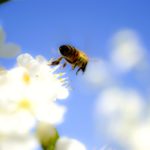
Tag Archives Pesticide

‘Keep it Clean’ program aims for more than just good advice
Program seen as 'one stop shop' for ensuring marketability of grains

If farmers keep misusing glyphosate, they may lose it
The warnings from the ‘Keep it Clean’ campaign are taking on a more urgent tone

Common sense needed in pesticide reviews: agri-food groups
The PMRA has been stacking review upon review in some cases, critics say

Natural pest control still a challenge
Pest control in potatoes is caught between growing pressure to cut back on common chemical tools and concerns over chemical rotation, but do biopesticides factor into the path forward?

Comment: ‘Dirty dozen’ list of ‘dangerous’ produce questioned
Unnecessary concern about pesticides could backfire by reducing consumption of cancer-fighting produce
Editorial: Right questions, wrong answers

CanoLAB workshop makes Dauphin debut
There was a broad cross-section of canola issues and topics at a recent CanoLAB workshop

Neonic replacement not popular with farmers or beekeepers
They’re too expensive, ineffective and still harmful to bees, to cite just some of the concerns expressed
CleanFARMS program gets significant uptake
The 2016 version of the industry stewardship program safely disposed of thousands of kilograms of farm inputs

Flight simulator shows pesticide effects
High-tech approach at the University of Saskatchewan uses virtual reality more common to video games






